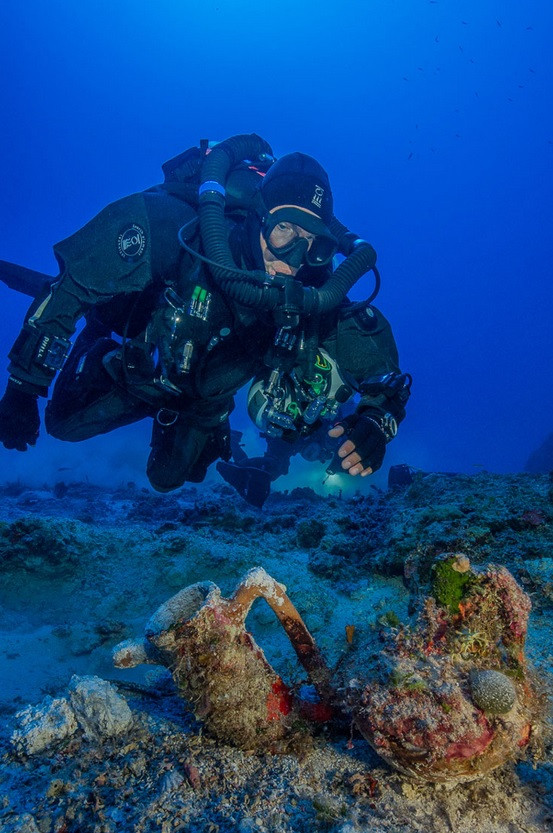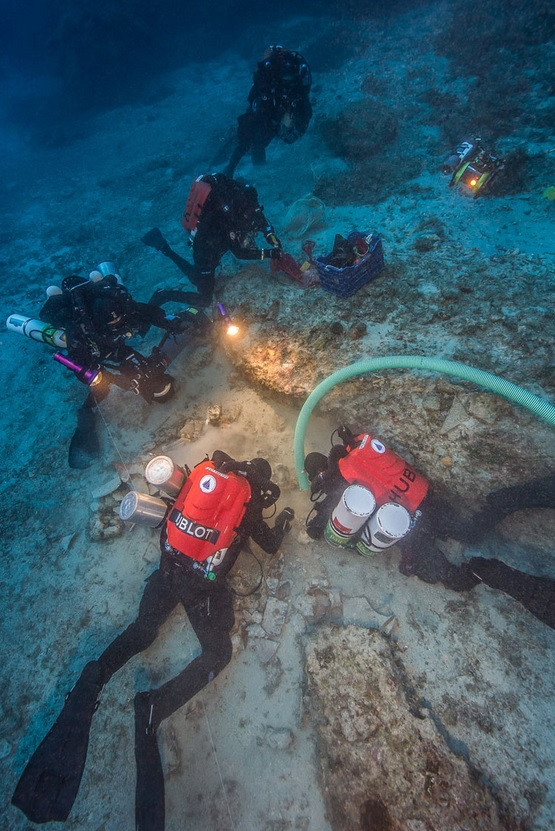Antikythera shipwreck treasures reveals how the top 1% of Julius Caesar's time lived

The excavation of the ancient Antikythera shipwreck has revealed how the top "1%" of Julius Caesar's time would have lived, with the remains of a bronze throne and luxury ceramics yielded from the latest expedition. Underwater archaeologists have revisited the site of the 2,000-year-old Greek shipwreck and have announced some of their latest findings.
The Woods Hole Oceanographic Institute said more than 50 items have been brought up from the shipwreck, including a bone flute, a bronze armrest (thought to be part of a throne) and a pawn from a board game. The latest treasures will be added to the other artefacts discovered at the site, including 36 marble statues of mythological figures and a life-sized bronze statue.
Most interestingly, the wreck uncovered the Antikythera mechanism – a mechanical device that encoded the movements of the planets and stars. This artefact has been much studied and has been called the world's first computer.
Researchers believe the ship sank around 65BC. It is thought to have been transporting treasures back to Rome from Greece following an expedition by Roman general Lucius Cornelius Sulla Felix. Brendan Foley, a marine archaeologist with WHOI, said: "This shipwreck is far from exhausted. Every single dive on it delivers fabulous finds, and reveals how the '1%' lived in the time of Caesar."

The latest expedition is part of a long-term research programme. Experts hope to recreate the history of the ship, its cargo and its ill-fated final voyage. Divers spent 40 hours at the site during this trip, using a specially designed diving suit that allowed them to spend more time underwater.
"The 2015 expedition has left the team with the best understanding yet of this unique shipwreck and its cargo," a statement said. "A metal detection survey of the site revealed that metallic targets are dispersed over an area of about 40x50m. This is thought to match the wreck's debris field, indicating the vast size of the ship that sank off the forbidding cliffs of Antikythera."
Metal detectors allowed divers to recover items including a large lead salvage ring, two lead anchor stocks, a finely formed table jug and an unidentified stone object perforated with 12 holes and filled with a mystery substance. The team hopes to identify the ancient food, wine and perfumes being transported by the ship.
Archaeologist Theotokis Theodoulou, from the Greek Ephorate of Underwater Antiquities, said: "We were very lucky this year, as we excavated many finds within their context, which gave us the opportunity to take full advantage of all the archaeological information they could provide."
© Copyright IBTimes 2025. All rights reserved.






















